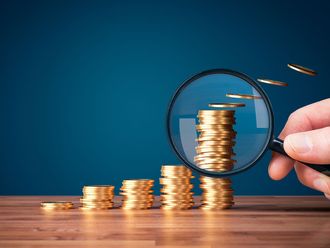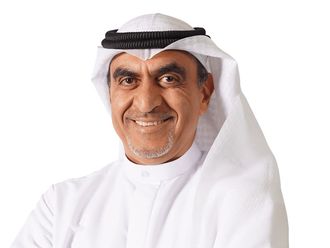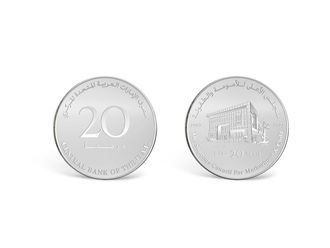Doha: Qatar is confident it can keep inflationary pressures contained while maintaining its longstanding currency peg to the US dollar despite the greenback's recent weakness, according to Abdullah Saud Al Thani, Doha's central bank governor.
Any impact on the Gulf economies from the sovereign-debt crisis in Europe and US economic difficulties would be "short-term," Al Thani said in an emailed response to questions from Zawya Dow Jones.
The Qatar Central Bank's monetary policy "is foc-used on managing the short-term interbank interest rates with a view to sustaining the peg," Al Thani said. "This policy framework has served us well and appears to be relevant, even under current circumstances."
Qatar, like Saudi Arabia and most fellow members of the Gulf Cooperation Council, pegs its currency to the US dollar, which has been under renewed pressure since rating firm Standard & Poor's Corp. stripped the US of the its coveted triple-A credit rating in August. A weaker dollar tends to push up the prices of imported goods for the GCC states, triggering inflationary pressures and prompting renewed speculation that some GCC central banks might ditch their pegs to the dollar.
But Qatar, like several other GCC central banks, made clear that it doesn't see a big inflation danger.
"Given a lower inflation environment, the weakening dollar may not have any severe pressure on inflation in Qatar," Al Thani said, noting that the consumer price index rose a modest 1.9 per cent in the year to July 2011.
Economic problems in the US and Europe may have a short-term impact on the GCC states, but the "longer-term impact will be limited because the economic fundamentals in the region remain strong," the central bank governor said.
Strong demand
Political unrest in the Middle East and strong demand from Asia's booming economies has kept the oil price high in recent months — good news for crude-exporting Gulf countries that can look to maintain spending on infrastructure projects to spur growth.
Qatar expects its economy to grow by 15.7 per cent in 2011 "powered by increasing international oil prices and sustained government support to the banking sector," Al Thani said. Continued government investment should sustain the country's growth beyond 2011, he added.
Al Thani said Qatar retains some flexibility in setting interest rates, despite the currency's peg to the US dollar, in order to counter any inflationary pressures and manage liquidity. Qatar has been cutting domestic interest rates steadily since August 2010, despite US rates remaining unchanged at close to zero, in the face of an inflow of so called "hot money" that has been attracted by Qatar's relatively high interest rates compared with those in the US.












